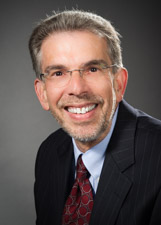Takeaway
After the holidays, I think back on patients who passed in December, an especially hard time to lose a loved one. At this time of year, I make an extra effort to help loved ones process their feelings.

Connecting with Patients | January 24, 2024 | 2 min read
By Eric Last, DO, Northwell Health, Wantagh, New York
Members of our staff are familiar with my annual lament: “Why does it seem we lose so many patients at the end of the year?” It seems at the end of every year, we make more hospice referrals, get more calls from newly grieving relatives, and receive more requests to complete death certificates. And every year, as the temperatures fall and the holiday decorations and spirits rise, our staff agrees with me.
This observation is based in fact. The U.S. Census Bureau states: “U.S. deaths have regular annual cycles, normally increasing in the winter and declining in the summer months.” The pattern repeats, over and over, with horrific spikes exacerbated in the past few years by COVID.
We humans like to find reasons for things. Uncertainty makes us uncomfortable. Randomness puts us ill at ease. Likely, these feelings are engendered by our desire to feel some sense of control. And in our quest for control, for order, we rationalize. We use comfortable constructs to explain away the uncontrollable, the disordered.
In the context of end of year deaths, how many times have we heard “Of course she lasted until now; her goal was to spend one more holiday season with her family.” The explanation gives meaning to the incongruity of the seasonal deaths . . . a beautiful time of year marred by loss.
For families experiencing these passings, it’s no longer just New Year’s Eve, Christmas, Hanukkah, or Kwanzaa. The holidays will forever be the anniversary of when they lost a loved one. Whether we’ve known these patients and their loved ones for decades or mere months, we will be part of this time of their lives.
They may ask us for reasons, for explanations of what they’re experiencing. What’s not being asked for is a clinical explanation of the passing; the time for that is gone. Loved ones may be looking for a rationalization that puts them back in control, that allows them to feel some order in their newly unsettled universe.
Of course, we can’t provide that order. What we can give is reassurance and affirmation—that they did all they could, that they made the best decisions possible with the information available, that they were there for their loved ones, and that their loved ones really, truly mattered.
Finally, we can admit that we share their confusion and awe about all that we don’t understand.
This piece expresses the views solely of the author. It does not necessarily represent the views of any organization, including Johns Hopkins Medicine.

